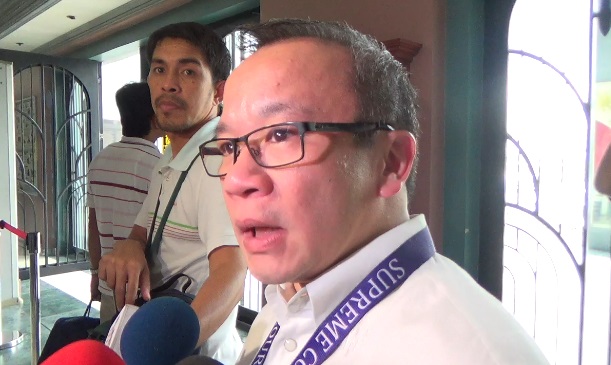Purisima told: SC didn’t stop Subic power plant
MANILA, Philippines–The Supreme Court did not stop the construction of a coal-fired power plant in Subic, Zambales province, its spokesman said on Thursday to correct the claim of Finance Secretary Cesar Purisima and Budget Secretary Florencio Abad that the high tribunal’s alleged action threatened the country with a potential power crisis in 2015.
Spokesman Theodore Te said Purisima might have been misinformed when he said that the country would not be facing such a crisis had the high court not issued a temporary restraining order (TRO) against the $1.28-billion, 600-megawatt power project at the Subic Bay Freeport.
According to Te, what the high court issued in August 2012 was a writ of “kalikasan,” not a TRO, against the Department of Environment and Natural Resources, Subic Bay Metropolitan Authority and the Redondo Peninsula Energy Inc., acting on a petition filed by party-list groups led by Bayan.
The high court then referred the petition to the Court of Appeals and directed the respondents to make a “verified return” of the writ to the CA, he said.
Te also clarified that while it issued a writ of kalikasan, the high tribunal did not issue a temporary environmental protection order (Tepo) that would have served as the “writ of restraint.”
Article continues after this advertisement“Clearly, the SC did not TRO the plant, as the Secretary (Purisima) has mentioned,” he said.
Article continues after this advertisement“Unless the secretary is referring to another case and another TRO regarding Redondo, the statement would appear to be without factual basis,” Te said.
A writ of kalikasan is a legal remedy under Philippine law which provides for the protection of one’s right to “a balanced and healthful ecology in accord with the rhythm and harmony of nature,” as provided for in the Constitution. It may be sought to deal with environmental damage of such magnitude that it threatens life, health, or property of inhabitants in two or more cities or provinces.
Briefing senators on the proposed 2015 budget last Wednesday, Purisima and Abad said the country would not be facing a power crisis had the high court not issued a TRO against the construction of the coal plant in Subic.
“Had the Supreme Court not TRO-ed the Redondo power plant, which would have been onstream, we wouldn’t even facing this issue,” Purisima said last week.
Abad said the power plant would have been more than enough to cover the projected shortage of 400 MW next year.
“If that project gets on stream, we’re not talking about of a possible crisis here. The issuance of a writ of kalikasan stops us from developing a remedy that should have answered the potential crisis in power supply,” Abad said.
Te said that Abad might have been misinformed on the effects of the writ of kalikasan.
He explained that the issuance of a writ of kalikasan is really just an order to comment on the issues.
“It’s only when the final judgment is handed down that parties will know if an environmental protection order will be issued,” he said.
By ordering a “verified return of the writ,” Te said the high court was asking the respondents to answer the petition.
Without a Tepo, the writ does not restrain the respondents from “acting,” he explained.
